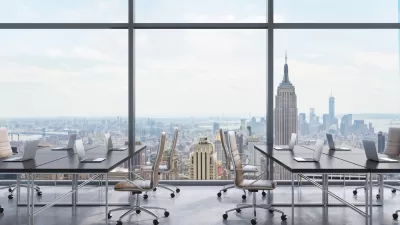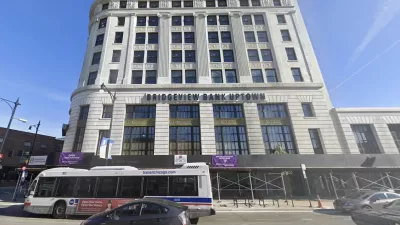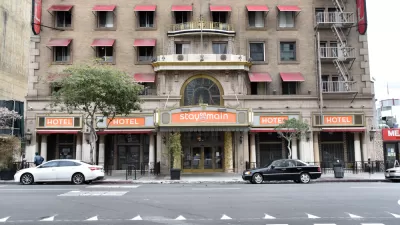Cities with ordinances aimed at making commercial-to-residential conversions easier are reaping the benefits.

The rise of commercial-to-residential conversions in Los Angeles reveals how easing permitting for adaptive reuse can yield positive results, writes Molly Bolan in Route Fifty. “Last year, the city accounted for 12% of the country’s adaptive reuse projects, creating more than 1,200 units, according to a recent report from Yardi Matrix, a commercial real estate research firm.”
Adaptive reuse isn’t new for the City of Angels, Bolan points out. “Los Angeles adopted its first adaptive reuse ordinance in 1999, making it easier for developers to convert underutilized commercial spaces into housing. The policy helped bring 12,000 residential units to the heart of the city.” In 2003, the city expanded the ordinance to include more neighborhoods outside of downtown, but large parts of the city still fall outside its purview, and only buildings built before 1975 are eligible.
Now, “City officials are looking to change that. A proposed update would expand the ordinance to cover the entire city, as well as reduce minimum unit size requirements and eliminate minimum parking requirements for projects within a half-mile of a major public transit stop.” The proposed update would apply to any building over 15 years old.
Bolan adds another example from a much smaller community: Kissimmee, Florida was home to 6 percent of the nation’s conversions last year, with hotels and motels accounting for a large part of this number. Because of the area’s tourist-commercial zoning rules, “developers don’t have to navigate a rezoning process and aren’t subject to public hearings.”
FULL STORY: How cutting red tape can encourage housing conversions

Maui's Vacation Rental Debate Turns Ugly
Verbal attacks, misinformation campaigns and fistfights plague a high-stakes debate to convert thousands of vacation rentals into long-term housing.

Planetizen Federal Action Tracker
A weekly monitor of how Trump’s orders and actions are impacting planners and planning in America.

In Urban Planning, AI Prompting Could be the New Design Thinking
Creativity has long been key to great urban design. What if we see AI as our new creative partner?

Cal Fire Chatbot Fails to Answer Basic Questions
An AI chatbot designed to provide information about wildfires can’t answer questions about evacuation orders, among other problems.

What Happens if Trump Kills Section 8?
The Trump admin aims to slash federal rental aid by nearly half and shift distribution to states. Experts warn this could spike homelessness and destabilize communities nationwide.

Sean Duffy Targets Rainbow Crosswalks in Road Safety Efforts
Despite evidence that colorful crosswalks actually improve intersection safety — and the lack of almost any crosswalks at all on the nation’s most dangerous arterial roads — U.S. Transportation Secretary Duffy is calling on states to remove them.
Urban Design for Planners 1: Software Tools
This six-course series explores essential urban design concepts using open source software and equips planners with the tools they need to participate fully in the urban design process.
Planning for Universal Design
Learn the tools for implementing Universal Design in planning regulations.
Appalachian Highlands Housing Partners
Gallatin County Department of Planning & Community Development
Heyer Gruel & Associates PA
Mpact (founded as Rail~Volution)
City of Camden Redevelopment Agency
City of Astoria
City of Portland
City of Laramie





























